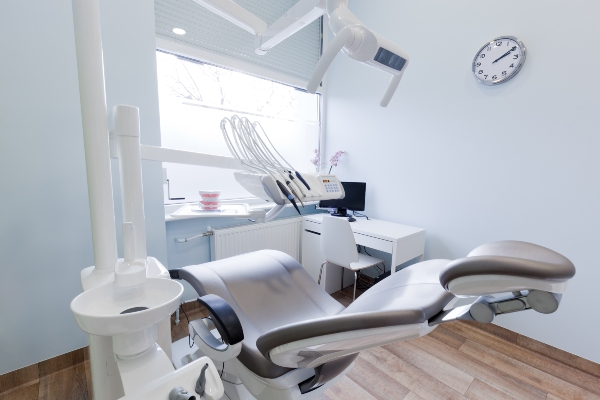 The primary goal of general dentistry is to prevent dental diseases from occurring. However, that is not always possible. If prevention is no longer possible, the objective becomes to treat the disease.
The primary goal of general dentistry is to prevent dental diseases from occurring. However, that is not always possible. If prevention is no longer possible, the objective becomes to treat the disease.
Treating dental diseases is easier and can be more effective if the dentist catches them early. There are several different screening methods used in general dentistry to catch diseases in their early stages.
Types of dental diseases
Dental diseases can affect not only the teeth but the other structures in the mouth as well, such as the gums. Here are some common oral health complaints.
Periodontal disease
Periodontal disease affects the structures that hold your teeth in place, including the gums and the jawbone. A buildup of plaque on the teeth can cause gums to detach, forming pockets between the teeth and gums where bacteria can collect, resulting in an infection. The scientific name for gum disease is gingivitis, while periodontitis is a more advanced form of gum disease.
Tooth decay
This is one of the most common dental health problems. It occurs when plaque mixes with starches or sugars to produce acid. The acid collects on the surface of the teeth and causes the enamel to weaken and break down. The longer tooth decay persists untreated, the more serious damage it can cause to the tooth.
Oral cancer
Cancer is the malignant growth of abnormal cells. It can occur almost anywhere in the body, including the mouth. The risk of oral cancer increases due to tobacco use, alcohol consumption, and age, with people over 40 being at greater risk. If caught in the early stages, oral cancer is usually treatable, but the chances of survival decrease if it spreads.
Routine general dentistry screenings
Routine screenings performed by a dentist help to identify signs of these diseases early so that treatment can begin right away.
X-rays
As parts of an iceberg float below the surface of the water and are not visible, the roots of a tooth extend below the gum line and are similarly invisible. Dental X-rays allow a dentist to look below the gum line and evaluate the health of the roots of the teeth. X-rays can also help identify signs of tooth decay in the visible portions of the teeth that may be too subtle to identify otherwise.
Dental exam
Most patients receive a dental examination every six months. The dentist observes the teeth visually and probes them with special instruments to search for signs of decay.
Periodontal exam
A periodontal exam involves measuring the spaces between the teeth and the gums. Bigger spaces mean a greater risk for gum disease.
Oral cancer screening
Oral cancer screening is performed using a special blue light. When exposed to the light, abnormal cells in the mouth appear green and glowing.
Conclusion
The most common dental diseases include gum disease, tooth decay, and oral cancer. Routine general dentistry screenings can identify the signs early and improve the chances for successful treatment. These exams are generally simple and painless.
Request an appointment or call South Florida Dentistry at 305-203-4097 for an appointment in our Miami office.
Related Posts
Many people have anxiety regarding going to the dentist. General dentistry visits can be easier if you have some tools to ease your nerves and get through your appointment with minimal stress. Fortunately, there are ways to ensure that you are calmer during dental or other medical appointments.A significant number of people fear going to…
The goal of general dentistry can be expressed as treating tooth decay and oral health issues if necessary and preventing them if possible. One of the most effective tools that dentists use in the prevention of tooth decay is fluoride.The enamel is the outermost layer of the tooth. It consists of minerals that combine to…
Bad breath can be easily addressed by general dentistry practices — but some patients try to hide the problem with strongly flavored toothpaste, mouthwashes, or breath mints. Bad breath can represent a problem with oral health, and it sometimes points to significant gum disease. Learn more below about the causes of bad breath and how…
